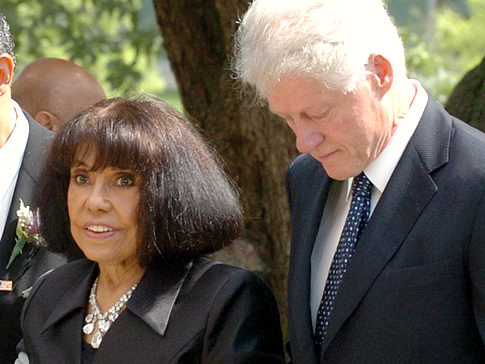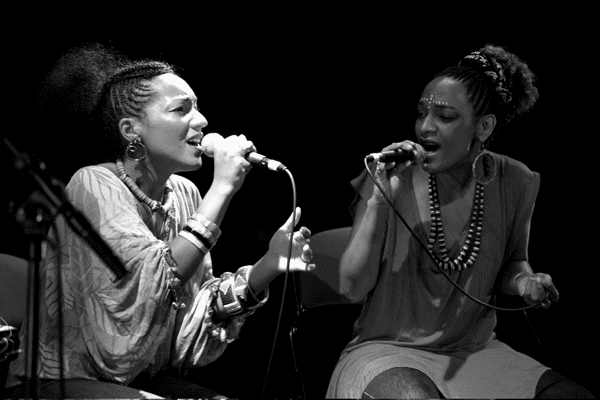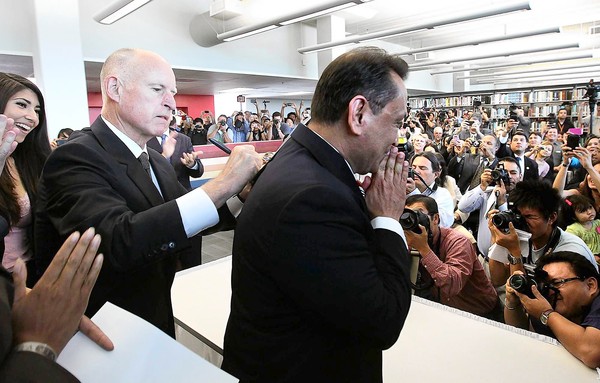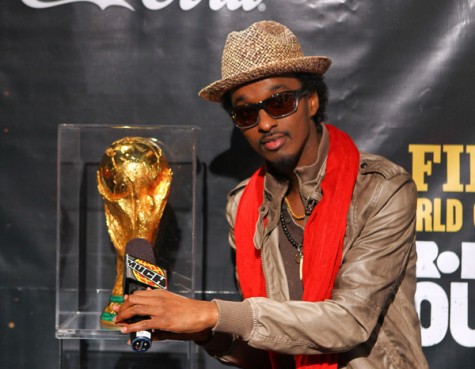When I was a child, I wanted to go to heaven. But today, after nearly 15 years in the United States, I’m absolutely sure that heaven is not for me. Before I explain my decision, let me tell you a little bit about my upbringing.
In our village of Makairo, Christian believers – and who wasn’t a believer – described the Promised Land as an Eden of milk and honey, fruits and sweets. But that seemed a perfectly reasonable description of the world I had been born into.
At first, I couldn’t imagine a place more beautiful than my ancestral home in the Gusii highlands of southwestern Kenya. The sun never failed to rise, even in the rainiest of the seasons. Everything grew big: bananas, avocados, passion fruits, sweet potatoes, corn, flowers. Unending plenty. There was a creek to swim in every mile or two.
Oh, but as in any Eden, there was a snake. My father cracked the whip in ways that made Kunte Kinte’s whippings in the movie “Roots” look like a joke. Corporal punishment was routine in my world, including in school, but not with my father’s punishing intensity. Could there be a place, I used to wonder, without such suffering?
Sokoro, my grandfather, had no doubt.
He was a man of great religious influence in the village. Sokoro was a holy man, the first one (so it was said) to bring a white man – a missionary, of course – to Makairo. Like most families in the highlands, we belonged to the Seventh-day Adventist Church (SDA). Sokoro read the Bible everyday. Ask my grandfather about Adventists and he’ll spin you a yarn so captivating you’d think he used to walk to school holding hands with Ellen G. White, the American founder of the Adventist movement.
My grandfather repeatedly told us during Bible study that, like the founder of the Adventist movement, Americans were extremely religious. In my imagination, America was gateway to heaven, a place people went for orientation to life in the Promised Land.
But as children we dreaded Sokoro praying during family Bible study meetings. His prayers lasted an eternity and we had to be on our knees. We used to joke that Grandpa prayed for everyone, including God.
The old man was said to be a successful businessman. He lived in Kapenguria, a town 200 kilometers from Makairo. Grandpa spent a few weeks every year in Makairo, where my grandmother and her children still lived.
There was no mistaking my grandfather when he walked up the path that led to our homestead from the main road. The walkway was the widest in Makairo. He had designed it wide enough so his children could drive their cars home when they were done with college and had good jobs. When he walked home, he always wore a suit and a newsboy cap. He carried a brown leather briefcase containing only a Bible. He needed no clothes. He had a closet in his house in Makairo. He walked with a cane, slightly hunched, but fast. To us, his grandchildren, he was a blessing, for his visits brought the only candy we would have in the year. I, especially, celebrated his presence because my father never hit me when grandfather was around.
As I grew older and began to wonder why my father was so abusive, I ran into an unfortunate irony: My grandfather, my role model and the man who brought joy to my life, was the reason. He had abandoned his children for another family. With him he took the key to the bank. His wife and children toiled on the tea field he owned, he came home a few times a year and took all the money supposedly to repay a loan he had taken to buy land for his sons. In a culture where a father ranks slightly below the Holy Trinity and is believed to have the power to condemn a son to eternal misery, my father and his siblings did not challenge him.
My father, who had been admitted to one of the best high schools in the region, dropped out after one year. In an era when Kenya was newly independent and high education paid immediately, some of my father’s classmates went to universities and became leaders of the new Kenya. Having missed out, he vowed to live that life through me, his firstborn. Unlike his father, he was going to give me everything to make it possible for me to succeed. When I didn’t live up to his high expectations he turned violent. “If 90 percent is the highest, why would they have 100?” he would ask.
Thanks to men like my grandfather, by the time I was born in the early 1970s, Gusii was an Adventist stronghold. But by the time I was six years old, Adventists had begun to lose numbers to the Catholic Church. One of the people responsible for the growth of the Catholic Church was an American priest named Fr. John Anthony Kaiser. He was the first white man I ever met. Fr. Kaiser lived in the Catholic mission in Kebirigo, a small town near Makairo. Because the Catholic faith was new in the area and lacked qualified priests, Fr. Kaiser presided over mass in several churches, including one two miles from Makairo.
Threatened by the rise of the Catholic faith, Adventists, who used to preach love and kindness, added a new line to their sermons: Saturday, the Sabbath, was the true seventh day – the day God chose to rest after six days of hard labor creating the world.
In private, small-group conversations, Adventist pastors and their flock became more forceful and explicitly. They called Catholics witches. I began to hear more about Armageddon from people besides my grandfather. The rise of the Catholic Church was a sign that the war that would test our faith had begun, they would say. It would be between the Catholics and us. They don’t respect our Sabbath. They worship idols hung around their necks. They go to church only for an hour.
“Can you believe they smoke cigarettes and drink booze after church?” one good Adventist would whisper, upon sighting a Catholic.
“In fact, they are already drunk when they leave church,” another would correct.
According to the prophecy, they say, the Catholics are going to lose the war and go straight to hell. In the beginning it might seem that they are winning. They will unleash terror on us and try to convert us. But if you stand firm and protect the Sabbath, God will intervene because he loves Adventists.
My mother rarely went to church and my father was a heathen in denial. He only listened to sermons if he was at funerals, which in our customs are held in the yard of the deceased. But my parents considered themselves Adventists. My father also believed that heaven belonged to children, and he had Matthew 19:14 to support his belief. “Let the little children come to me … for the kingdom of heaven belongs to them,” he would say over and over when he was drunk. He commanded that my siblings and I go to church every Saturday.
As I grew older, I began to stray from the Adventist movement. The hateful gossip; the parents telling their kids to pinch us and make our lives miserable so we can stop coming to church in “rags;” the constant staring to see if the poor kids were going to offer God a penny or a quarter; I was tired of it all.
Meeting Fr. Kaiser was also instrumental in my journey to leave the church. At the mission where he worked, the Catholic Church ran a clinic that served all people, regardless of their religious affiliation. I remember being taken to the clinics during one of the many stomachaches I had invented to avoid my father’s whip. Fr. Kaiser had been very gentle, unlike the government clinics where they yelled at the sick. While my Adventists were waiting for heaven to ease our pain, this good priest was doing it here on earth. (Fr. Kaiser defended Kenya’s poor to his death in 2000, when someone murdered him).
I became a teenager and went to a boarding high school in Tabaka, in the same Gusii highlands. There I got to see Tabaka Mission Hospital, which I had heard was the best in the region. It was then that I realized that while my Adventists were busy hating and condemning sinners, Catholics were building schools and hospitals.
Four years at my high school also taught me that all Adventists did was hijack public schools and label them SDA. Mine was TABAKA S.D.A. HIGH SCHOOL, but all the Adventists contributed was the pressure they put on the teachers to force students to hold prayers for two hours on Friday night and church services for six hours on Saturdays. They had Pathfinders, Adventist student officials, who caned you and made your life hell if you did not obey.
Unable to comprehend why my church was so dysfunctional, I concluded that it must have been because we it lacked white men like Fr. Kaiser. During my high school years I attempted to defect by attending a few Catholic services, but my father caught word and threatened to kill me. That would have to wait until I went to America. Ironically, it was learning more about the good Christian white men I admired as a child that strengthened my faith in the decision to leave the church altogether.
But that came later. In Kenya, I was still thinking of America as the gateway to the Promised Land. That belief was strengthened when one of my uncles gained admission in 1980 to a U.S. university, and began to send money home shortly thereafter.
When my uncle visited from America briefly in 1986 my kinsmen sat under omotembe, a sacred tree in front of my grandmother’s house, to listen as he told us about this magical place he lived in. They were not interested in how people in America earned money. They knew it was easy because my uncle returned with a lot of it and fed them for nearly a week. They wanted to hear about how amazing America was: the technology, the automobiles, the paved highways, the malls. My uncle described a box where you insert coins; the machine gives you food and beverages.
Later I came to know that as a vending machine. But in our oral communication tradition my uncle’s story developed into one about a machine that delivers food to people as they work in their offices. Everyone in America was rich and no one wanted to wait tables, my kinsmen said. Even my father, a teacher, often told that version of the story. And my grandfather explained that Americans were wealthy because all of them believed in God.
I finally made it to America and learned very quickly that my people hadn’t prepared me well for this heaven on earth. America wasn’t a place where you “wash cars for a day and make enough money to take the rest of the week off.” Nor was it a country where you buy clothes, wear them once and discard them. And, more surprisingly, it wasn’t that gateway to heaven where people praised God, night and day.
The more I lived with Americans, the more I found out that they weren’t as religious as I had thought. They were not out there using their God-given powers to heal. In fact, many of them were propagating hate. I learned of white supremacists and Christian extremists, who – like the Adventists of my childhood – invoke God’s name as they spread hatred. But unlike my Adventists, these Americans are armed with enough machine guns to start Armageddon.
In 2005, I was shocked to hear Pat Robertson – that grandpa whose show “The 700 Club” I loved to watch on television in Nairobi – call for the assassination of Venezuelan President Hugo Chavez.
Most recently in June, the Rev. Wiley Drake of First Southern Baptist Church in Buena Park, Calif., said he was praying for President Barack Obama’s death. And in August, another man of God, Pastor Steven Anderson of Faithful Word Baptist Church in Tempe, Ariz., told his congregation that he, too, was praying for the president’s death.
“I’m not going to pray for his good. I’m going to pray he dies and goes to hell,” Anderson told his congregation in a sermon titled, “Why I Hate Barack Obama.”
These are not the men I imagined I would find in heaven.
About Edwin O. Okong'o
Edwin Okong'o is an associate editor with the New America Media.Okong'o holds a master's degree from the Graduate School of Journalism at the University of California, Berkeley, where he studied newspaper, magazine and radio journalism. He has written for several U.S. publications.In 2006, the Human Rights Center at Berkeley awarded him a summer fellowship to research and write about the plight of Kenya's disabled citizens. He was the winner of the 2007 Clay Felker Award, given to Berkeley graduate students who have shown excellence in long-form narrative writing for magazines.Okong'o did his undergraduate studies in Mass Communication at California State University, Hayward, where he held various editorial positions including editor-in-chief of the student newspaper, The Pioneer.







